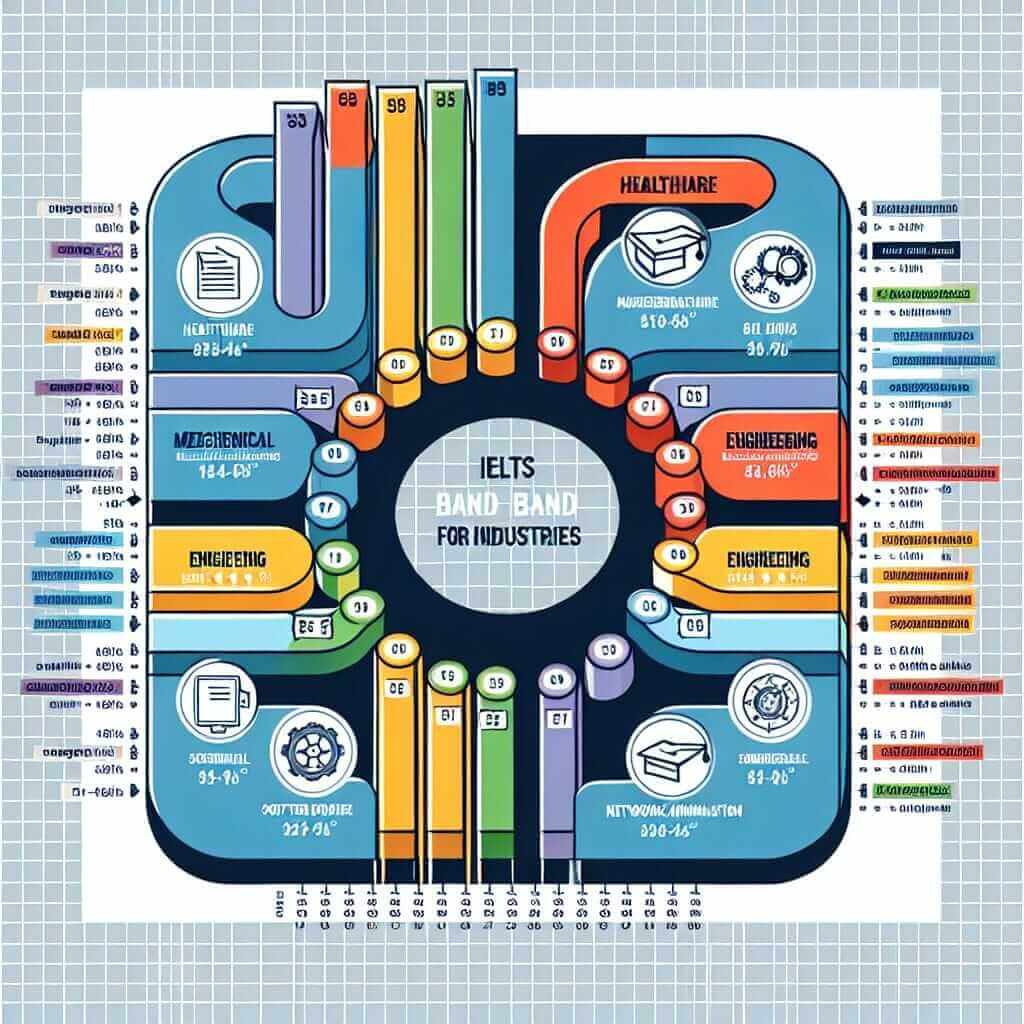When planning to work abroad, obtaining a satisfactory IELTS (International English Language Testing System) score is crucial. This score not only opens doors to many job opportunities but also ensures effective communication in an English-speaking environment. Let’s delve into the details to understand the IELTS band requirements for work, and how you can achieve your goal.
Nội dung bài viết
- Understanding the IELTS Band Requirement for Work
- Band Score Breakdown
- Typical Band Requirements by Country and Industry
- Examples Illustrating Band Requirements
- Applying the Knowledge to IELTS Preparation
- Example IELTS Questions
- Common Mistakes and How to Avoid Them
- Effective Practice Strategies
- Practicing Listening Skills
- Enhancing Reading Abilities
- Improving Writing Proficiency
- Developing Speaking Competence
- Conclusion
Understanding the IELTS Band Requirement for Work
IELTS scores are divided into nine bands, each representing a different level of English proficiency. For work purposes, the required band score can vary significantly depending on the country, the industry, and the specific job role.
Band Score Breakdown
- Band 9 – Expert user: Complete understanding and fluency in English.
- Band 8 – Very good user: Fully operational command with occasional inaccuracies.
- Band 7 – Good user: Operational command with some inaccuracies or misunderstandings.
- Band 6 – Competent user: Generally effective command, though some mistakes and misunderstandings occur.
- Band 5 – Modest user: Partial command, can handle basic communication in own field.
- Band 4 – Limited user: Basic competence is limited to familiar situations.
- Band 3 – Extremely limited user: Conveys and understands only general meaning in very familiar situations.
- Band 2 – Intermittent user: No real communication possible except basic words.
- Band 1 – Non-user: Essentially no ability to use the language beyond a few words.
Typical Band Requirements by Country and Industry
- Australia: Minimum of Band 5-7 depending on the visa and job requirements.
- Canada: Typically Bands 6-8 for professional roles.
- United Kingdom: Generally Bands 4-7 based on the profession and sector.
- Healthcare Sector: Often requires Band 7 or higher.
- Engineering and IT: Usually Bands 6.5-7.5.
- Hospitality and Retail: Commonly Bands 5-6.
Examples Illustrating Band Requirements
- Nursing in Australia: A minimum score of Band 7 in all four modules (Listening, Reading, Writing, Speaking).
- Software Engineer in Canada: At least Band 6.5 overall with no individual band below 6.0.
- Customer Service in the UK: Generally, a Band 5.5 overall is sufficient.
- Teacher in New Zealand: A minimum of Band 7 overall.

Applying the Knowledge to IELTS Preparation
Example IELTS Questions
-
Listening:
- Task: Multiple choice questions focusing on a workplace-related conversation.
- Example: A dialogue between a project manager and a team discussing project deadlines.
-
Reading:
- Task: Comprehension questions based on a workplace safety guidelines document.
- Example: Matching headings to paragraphs detailing health and safety measures.
-
Writing:
- Task 1: Writing a report based on given data, such as employee satisfaction survey results.
- Task 2: An essay discussing the pros and cons of remote working.
- Example Task 2 Prompt: “Some people believe working from home is beneficial for employees and companies, while others argue it causes more problems. Discuss both views and give your opinion.”
-
Speaking:
- Part 1: Answering questions about your job and daily tasks.
- Example: “Can you describe your typical day at work?”
- Part 2: A long turn discussing a situation at work where you had to solve a problem.
- Part 3: A discussion on workplace technology advancements.
Common Mistakes and How to Avoid Them
- Listening: Failing to follow the conversation due to unfamiliarity with workplace jargon.
- Solution: Practice with workplace-related listening exercises and familiarize yourself with common industry-specific terminology.
- Reading: Misinterpreting questions due to lack of understanding complex workplace documents.
- Solution: Regularly read industry reports, manuals, and articles to enhance comprehension skills.
- Writing: Difficulty in structuring essays and reports coherently.
- Solution: Follow the standard essay and report formats, practice writing concise and clear explanations.
- Speaking: Lack of fluency and confidence in discussing work-related topics.
- Solution: Engage in regular speaking practice with peers or teachers focusing on workplace scenarios.
Effective Practice Strategies
Practicing Listening Skills
- Activities: Listen to workplace podcasts, corporate meeting recordings, and customer service calls.
- Resources: Authentic listening exercises from IELTS preparation books and online platforms.
Enhancing Reading Abilities
- Activities: Read business articles, academic journals, and industry news.
- Resources: Use IELTS reading practice tests and online resources to build comprehension.
Improving Writing Proficiency
- Activities: Write essays, business reports, and emails.
- Resources: Enroll in online writing courses and seek feedback from qualified instructors.
Developing Speaking Competence
- Activities: Participate in group discussions, mock interviews, and role-plays.
- Resources: Join speaking clubs and connect with native speakers for practice.
Conclusion
Achieving the required IELTS band score is a crucial step in your professional journey. By understanding the specific band requirements, practicing effectively, and enhancing your language skills across all modules, you can secure the score needed for your desired job role. Remember, consistent practice and an in-depth understanding of the IELTS test format are key to success.
If you have any questions or need further assistance, please leave a comment below or explore our other resources on IELTS.NET. Good luck with your IELTS preparation!